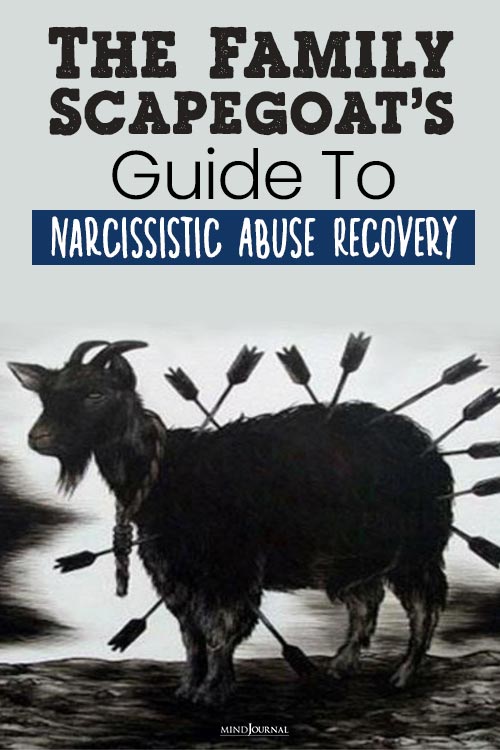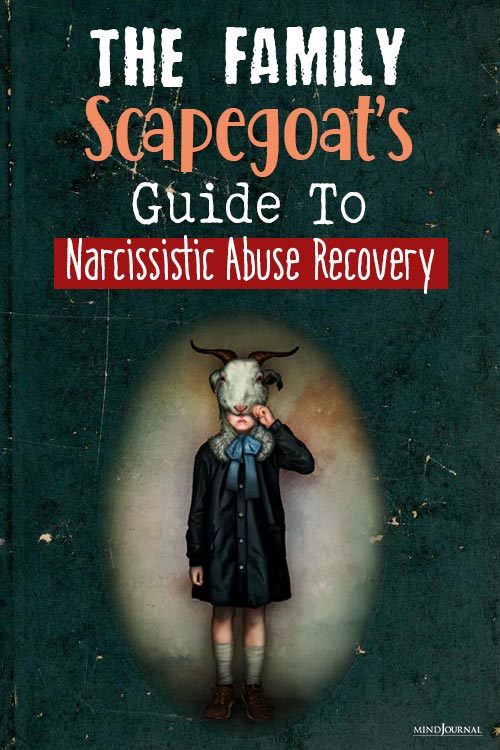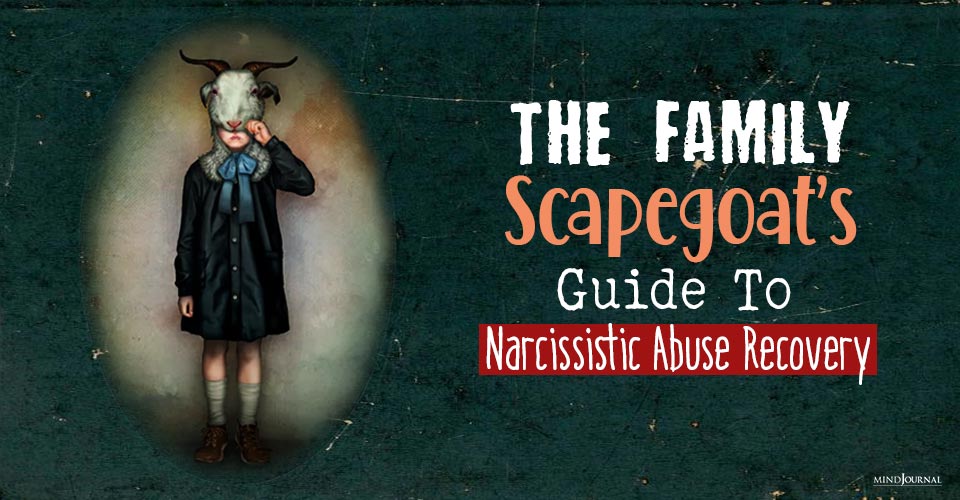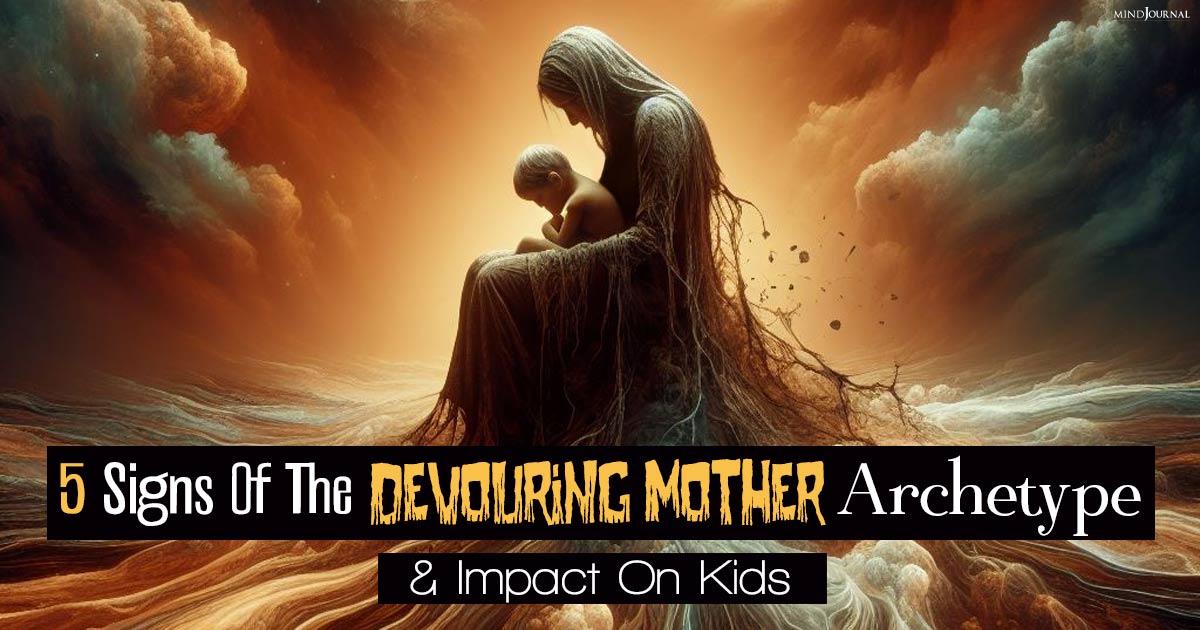“The family scapegoat doesn’t get picked randomly or by accident. Usually, they are either sensitive, unhappy, vulnerable, ill and/or the outspoken child or whistleblower. In other words, the scapegoat is the child who refuses to look content or stay silent in the unbearable atmosphere created in the family home.” – Glynis Sherwood
Narcissism is a set of unhealthy personality traits that exist on a continuum from excessive self-absorption to a ‘hard-wired’ personality disorder.
Narcissism is characterized by:
- Extreme self-centeredness/self-obsession shows up as the relentless pursuit of personal gratification and attention seeking, social dominance, and cold-blooded ambition.
- The inability to take responsibility for one’s behavior or keep commitments, while being dependent on others to meet his/her responsibilities – in essence, being functionally impaired.
- Lack of empathy, as well as the need to be right, perfect, and admired at all times.
- Feeling entitled to special treatment, regardless of circumstances or accomplishments.
At its core, narcissism is a defense against deep-seated low self-worth that is pushed out of the conscious mind of the narcissist. This rigid kind of personality structure tends to develop in response to childhood neglect, abuse, or trauma, where emotional needs are unmet or denied.
If the narcissist’s wants and needs – real or imagined – are not met in adulthood, s/he is prone to fly into rages and ‘defend’ her/his low self-esteem through blaming or attacking others. S/he is usually not consciously aware of this process, as the defense of blaming others is much more developed – meaning rationalized – than any insight regarding the appropriateness of their behavior, or the potential for taking responsibility for themselves.
Related: Why Family Scapegoats Become Lifelong Victims
Most narcissists have an underlying belief that they are helpless to make themselves better, and are stuck in a perpetual victim stance where they see themselves as innocent bystanders in a world that continues to do them wrong.
Some forms of narcissism are overt, where the individual behaves in a grandiose, superficially charming, and entitled manner. Other narcissists are more covert and present as falsely humble victims of a cruel world that has not given them their due.
However, both types of narcissists can respond with rage and malice if their expectations of attention, admiration, pity, or being treated as special are not met by others.
You may recognize one or more family members in these profiles of overt and covert narcissists. Regardless, if the narcissistic family member is in a dominant position, as with a parent, then that behavior profoundly influences the tone of the family. A narcissistic parent may be partnered with an individual with codependency problems.
A codependent parent fixates on trying to manage, enable or accommodate the narcissistic parent in order to gain a sense of purpose, worth, and control.
If you grew up in a narcissistic family system, you probably felt unsupported, neglected, or abandoned. You were likely told – directly or indirectly – that you had to put your narcissistic family member’s needs first, or got accused of being ‘selfish’, and punished or ostracized if you didn’t. Your narcissistic parent may have had a substance abuse problem or other addictive habits.
If you did not go along with the narcissist’s agenda you were likely criticized, blamed, or shamed. In other words, you were scapegoated.
The family Scapegoat is often the family member who is non-compliant with mistreatment, the whistleblower, expresses displeasure or advocates for their own needs, and is then demonized as the family problem, thereby establishing a ‘false narrative’ of victim blaming.
Narcissistic Family Member Traits – Experience And Impact On The Scapegoat:
- You are not allowed to be yourself – to have your own needs, personality, and independence. You are scapegoated and labeled as self-centered and possibly “narcissistic” for having your own wishes and interests and face punishment and /or shunning if you pursue them.
- You experience a lack of real empathy, though it may be feigned. Even if you are empathic towards family, you are accused of being uncaring for not putting others – especially the narcissistic family member – first.
- Family members may align with the narcissist, who is viewed as either the legitimate power broker or a tyrant to be appeased. These narcissist supporters can be the other parent, siblings, their children, or even extended family. Lies are perpetrated to encourage the family to side against you as the family scapegoat.
- You are expected to act as a parent to your parent(s), rather than having your parent(s) care for you. You lose love, approval, privileges, etc. if you can’t, won’t, or don’t.
- Poor and inappropriate family boundaries are the norm – e.g. intrusiveness, mistreatment, abuse is normalized or sanctioned, disrespect, negligence of health and/or safety, and externalization of the problem onto those who point it out.
- Ongoing scapegoating, criticism, attacks, blaming, shaming, or shunning are used as a threat or weapon by the narcissist and their allies, especially if they don’t get their way.
- Pressure is placed on you to make the narcissistic family members look good to outsiders. Rejection or abandonment results if you do not. Outsiders are treated as more important than family. Meanwhile, your accomplishments are ignored, minimized, or even criticized, unless your talents make the narcissistic family member(s) look good.
In other words, in a complete reversal of reality, you are accused of and punished for other people’s narcissistic expectations, demands and behavior. Projection is the name for this kind of behavior, which in itself is a cornerstone of classic narcissistic defense.
Related: The Blameless Burden: Scapegoating In Dysfunctional Families
Psychological Harms To The Scapegoat That Linger From Narcissistic Abuse:
- Doubting your self-worth. Believing you are ‘bad’ or defective. Buying into negative feedback from family.
- Having an overwhelming need for external validation.
- Feeling constantly anxious, overwhelmed, or confused not knowing what your family wants from you, or how to please them.
- Believing you have to make the narcissist happy to prove you are lovable and not ‘bad’ or the problem.
- Difficulty making and keeping relationships. Choosing narcissistic partners or friends.
- Fear of abandonment and imposter syndrome should others discover how ‘flawed’ you really are.

Why Do Family Members Align With The Narcissist?
- The narcissist appears to have power. They call the shots, command attention, control decision-making, and extract compliance from others. They are defective ‘alpha dogs’. Those who go along with this power grab hope to share in the power – or at least not be targeted for abuse.
- Fear of facing ‘the awful truth’ about family or oneself, and having to do something about it, leads to minimizing or denying the existence of the problem. Faced with the potential of being attacked and rejected, and the general upheaval that can stem from taking responsibility for admitting the truth, many narcissist supporters will choose to ‘look the other way’, at tremendous cost to themselves and the family unit.
Why You As Scapegoat Need To Recognize The Problem To Begin Narcissistic Recovery
In short, your psychological well-being depends on it! Family relations are at best strained and, at worst, broken down in narcissistic family systems. There is a pattern of entrenched negativity that has been going on for years or decades that never seems to improve and wears you down emotionally.
The truth is that things likely will not get better, as narcissistic people lack the empathy and insight that would motivate them to change their attitude and behavior for the sake of their relationships. Their supporters lack the will or courage to think for themselves, or they believe they benefit from this arrangement and will not challenge it.
This extracts a heavy psychological toll on healthier family member(s) like you – the Scapegoat – who attempt to function within and possibly ‘improve’ toxic family dynamics. In spite of good intentions, this is almost always a setup for failure!
In fact, the most likely outcome is that you will continue to be caught up in a vicious cycle trying to appease the narcissist and walking on eggshells or confronting their self-centered behavior, leading to repeated angry outbursts, hostility, shunning, blaming, and shaming reactions from the narcissist and his/ her supporters.
You may be subjected to escalating family scapegoating from narcissistic family members and their allies. What’s worse, is you may have been conditioned to blame yourself for the problem too, which is a kind of brainwashing known as Stockholm Syndrome.
Related: The Masters Of Blame Shifting: Why Narcissists Never Become The Scapegoat
How To Protect Yourself
The Big Picture of Recovery from Narcissistic Abuse
1. Understand that someone who has a history of entrenched narcissistic behavior is not going to change, and you can’t help him/her to heal or become a better person. You simply don’t have that kind of power! There are long-term therapies that can help narcissistic family members, but few attempt this as they are unable to acknowledge that they have a problem, never mind do something about it unless something huge is at stake.
For example, their spouse threatens to leave them or they are disciplined at work. Even under those terms, it is difficult for narcissistic people to accept that they have caused or contributed to problems with others, as they see themselves as victims.
2. Hold onto reality – that the narcissistic family member won’t let you have a meaningful, love-based relationship as they simply don’t know how, and can’t see the value of it to themselves. It’s all about maintaining power, and love has no role to play in that equation. They don’t care about you, not because you aren’t valuable, but because they don’t know how, being completely self-centered.
In that way, narcissistic behavior is not personal, but a reflection of something missing in the narcissist. It feels very bad, however, to be on the receiving end of this abuse or neglect, especially for children of narcissistic parents who never received the love and nurturance required for healthy human development.
3. Stop expecting the narcissist to become reasonable or caring – if only you can get through to him/her. It’s not your job to ‘fix’ them, and it’s completely futile as well. Go Low Contact to preserve your peace of mind and minimize harm to yourself.
4. Realize you are not responsible for the narcissistic person’s abusive or negligent actions, no matter how much they try to blame you or claim victimhood. Choosing to exercise self-control and not act abusively is a fundamental adult responsibility.

Scapegoat Survival Strategies
- Stop disclosing any personal information that the narcissist can use against you. This includes how you feel, what’s going on in your relationships or your job, or anything you are struggling with that makes you feel vulnerable and in need of support. Do not ask for help or offer to be a rescuer.
- Keep the conversation superficial. Avoid power-based emotional subjects, such as naming the problem or discussing appropriate family behavior.
- Distance from negative family interactions by deciding to go to minimal or No Contact. Set ground rules with yourself about what you are willing – and not willing – to tolerate regarding behavior from other family members. Set limits on how much time you are willing to invest with family.
- Connect with allies in your extended family, if any. Test the waters by taking low-risk steps to establish trustworthiness. For example, inviting them for coffee, keeping the conversation light, and seeing if they appear to be caring and interested in you.
- Consider getting counseling from a therapist who specializes in family abuse and scapegoating for family scapegoating advice. If you are the adult child of a narcissistic parent(s) you have been deprived of essential parental support and appropriate guidance. If you are questioning your self-worth, have a hard time bonding with others, are vulnerable to falling into negative relationships (repeating the original trauma), or are prone to self-destructive behavior, seek counseling to help build your sense of self-worth, overcome the hurt and become the person you are meant to be – a person of worth who deserves the peace of mind and fulfillment.
Related: The 5 Child Roles In Dysfunctional Families
Want to know more about when you’re the family scaepgoat? Check this video out below!
To request an appointment, or join my email list to receive free resources as I create them, please visit https://GlynisSherwood.com
References:
Empathy Deficits in Siblings of Severely Scapegoated Children: A Conceptual Model Jane Hollingsworth, Joanne Glass & Kurt W. Heisler, Journal of Emotional Abuse, October 2008 Scapegoating in Families: Intergenerational patterns of physical and emotional abuse, Dr Vimala Pillari, Philadelphia, PA, US: Brunner/Mazel, 1991 Child Abuse: Pathological Syndrome of Family Interaction, Arthur Green, Richard Gaines and Alice Sandgrund, The American Journal of Psychiatry, 2015
Written By Glynis Sherwood Originally Appeared On Glynis Sherwood










Leave a Reply
You must be logged in to post a comment.